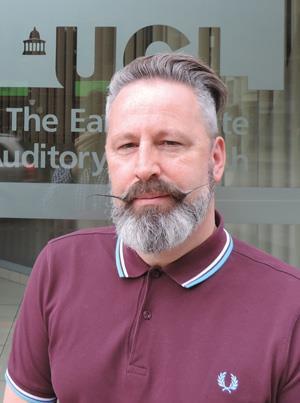The teams forging innovative partnerships

Industrial placements are growing in popularity. So much so that in 2015 Imperial College London, UK, created an industrial liaison officer role in their chemistry department to develop and manage relationships with industry. And a large part of that role is coordinating industrial placements. Having previously benefited from an industrial placement herself, Jo Rimmer was ideal to be the inaugural person in this position. People across the department had already been doing aspects of her role, but Rimmer explains: ‘It’s really useful to have one point of contact in the department.’ The department’s goal is that every undergraduate student completes at least one placement or internship during their degree. ‘Faculty often notice that those who complete year-long placements return more motivated,’ she says.
These placements are having a wider impact than just boosting a student’s chemistry, business and soft skills. They’re laying the foundations for long-term relationships. The lines between industry and academia are blurring, and rather than the spotlight being selling or exchanging ideas, there’s a definite lean towards exchanging people.
Visiting hours
Rick Cousins, research director at GlaxoSmithKline’s (GSK) Stevenage site, holds a visiting professor position at University College London (UCL), UK, spending one day a week there since September 2014. GSK set up its visiting professor programme to foster greater understanding and collaboration between industry and academia. But it’s not a cookie-cutter programme – Cousins has a bespoke agreement with UCL on what activities he gets involved in, which might be quite different to his GSK colleagues on the programme at other universities.
[[I’ve seen science that I wasn’t aware of and upped my game]] Initially, Cousins focused on opening the lines of communication: getting to know members of the department, what they’re working on and explaining how he might be able to help them. For UCL, he’s a window into industry. On a personal level, he has developed an understanding of how academia perceives industry and has consequently corrected previous assumptions of what his academic colleagues do and don’t know. He’s also enjoyed educating undergraduates and postgraduates on how they can apply the science they’ve learnt as part of their degree. ‘I’ve also been exposed to science that I wasn’t aware of and upped my game,’ he adds.
Cousins’ advice for those taking part in a similar type of collaboration is to remain humble and pitch things appropriately. The affiliation has no set end date, but Cousins highlights the importance of both parties regularly assessing what they’re gaining from the relationship. He has regular review meetings with his sponsor at the university to decide if it is still working for both parties. He also emphasises that a long-term relationship is needed to make it worthwhile. ‘It takes time to build relationships and trust,’ he explains.
Cousins has already established a couple of collaborations through his position at UCL, one looking at very early science where he has provided some GSK compounds to the university. He’s confident that further fruitful relationships will grow from the arrangement. ‘The other thing to remember is it’s not all about GSK compounds. We don’t work in every area. But I’ve been able to provide insight and recommendations on compounds from other pharma companies or research institutes. It’s not just about GSK – it’s about bringing the field forward.’
Cousins also commends GSK on recognising the importance of personal development for staff. ‘It’s part of a holistic approach we have at GSK. It’s good to have a broad range of ages and experiences across a company and this is a good way to invest in the senior members of staff and stretch them in different ways. Generally, when you’re given this type of opportunity, you often come back and work twice as hard – you’re motivated and stimulated and you recognise the privilege of being given this type of opportunity. One shouldn’t underestimate these investments when you’re developing people, they are rewarding both for the individual and for the company that’s prepared to make those investments.’
Share and share alike
Shared space is an alternative way to foster collaborations. The Materials Innovation Factory (MIF) at the University of Liverpool, UK, is on track to be a model example when it becomes operational in 2017.

Programme manager Jon Mercer is there to help glue everything together. A physicist by trade, he previously worked in the semiconductor industry before coming to the university to handle flagship research projects in the chemistry department. ‘The MIF is all about collaboration. It’s facilitating the link between industry and academia,’ he explains.
The Higher Education Funding Council for England’s UK research partnership innovation fund part-funded the centre with that link in mind. Unilever, co-founder of the MIF, is taking up a private floor of the four-storey building, and the ground floor is an open access area where equipment is available for anyone to use. ‘There’s space in the building where research partners can co-locate for a week, a month, a year,’ explains Mercer. ‘It’s about sharing a common vision and desire to build cutting-edge capability to support our research.’ Academics, including those from other universities, and businesses can use the facility for a fee, but they don’t have to collaborate with academics from Liverpool. ‘We’re building a community of likeminded researchers on our doorstep. The MIF is a way of doing it – the people and the community are the most impor tant bits. We believe we indirectly benefit from supporting a community of like-mind researchers, enabling cutting-edge research, and will hopefully capitalise on this through the success of our academic groups organically growing collaborations.’
[[Collaborations based just on funding often fizzle out … relationships continue when you’ve got a shared vision and facilities]] ‘This is an exciting opportunity for industrial and academic researchers alike,’ says MIF academic director Andy Cooper. ‘We want to break out of the usual way of doing chemistry by using robotics, automation and computer-aided materials science to design molecules from the atom up and then make new materials and formulations in our labs.’
One of the first tasks for the MIF team, once the build project was on track, was getting all agreements sorted. ‘You have to imagine what could go wrong and develop suitable mitigation plans for them all,’ says Mercer.
Mercer adds he can’t overstate the benefit of co-locating. Even though Unilever is only a 20-minute drive away, ‘it’s still a gap and it’s not the same as being in the same building. You won’t get those serendipitous conversations in the coffee area or the lab. Collaborations based just on funding often fizzle out once the funding has gone but relationships continue when you’ve got a shared vision and shared facilities.’
Friends in small places
Of course, large companies are much better equipped, with money and people for a start, to initiate and maintain collaborations. For small and medium enterprises (SMEs) it’s not as easy. However, resources do exist to support those establishing an alliance. One such example is the Lambert toolkit, which contains agreement templates, negotiation suggestions and information on navigating the multifaceted intellectual property issues that are inherent to collaborating and sharing knowledge.
At the same time, those seeking help often complain about how complicated some of the schemes are. Ann Dowling, president of the Royal Academy of Engineering, recognised this in the report she wrote last year for the British government on business–university research collaborations. ‘Where simplification is not possible, every effort should be made to “hide the wiring” from businesses and academics seeking support.’ it said.

















No comments yet